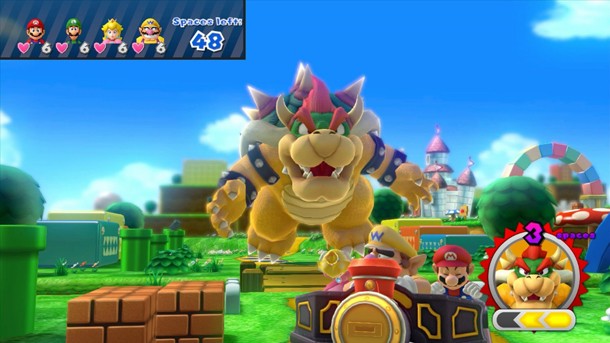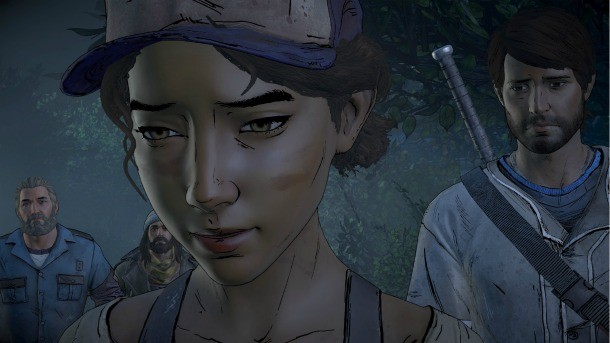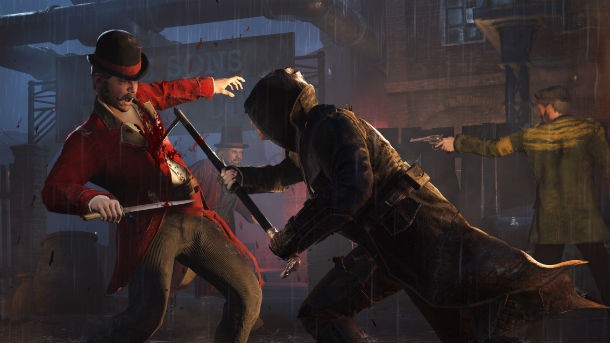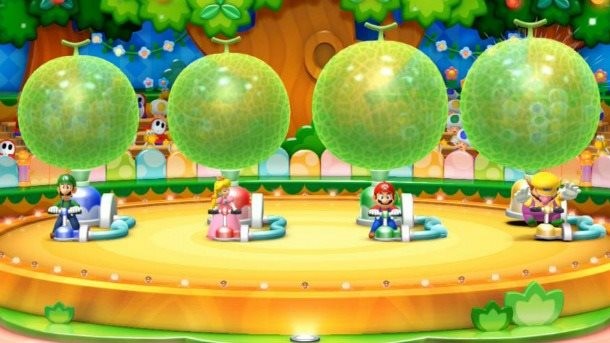How Six Predictable Series Can Surprise Us Again

Mario Party. Assassin’s Creed. Telltale’s The Walking Dead. When we hear these names, mental images of zany minigames, open worlds, and difficult decisions instantly spring to mind. In this way, many long-running game series tend to create a gameplay formula and stick to it to give fans more of what they like, simply changing the characters and setting to keep things new. Unfortunately, this pattern can become all-too familiar, causing games to feel repetitive and series to grow stale.
The Legend of Zelda: Breath of the Wild and Resident Evil 7: Biohazard are both recent entries in well-established franchises that broke from the conventions of their predecessors, bringing new life to the gameplay. This list picks other series that we think could use a fresh take on what makes them great by breaking the mold and trying something different.

Telltale’s The Walking Dead
What’s getting old: Telltale’s first season of The Walking Dead grabbed players’ heartstrings with its well-written characters, bleak setting, and gut-wrenching ultimatums. Featuring emotional decisions that altered the story, action sequences with quick-time events, and easier puzzle-solving segments, the formula took off and laid the foundation for every other series the studio has since developed. Though characters come and go, The Walking Dead’s themes and mechanics stay the same, making the pattern tired and predictable.
How to make it new: The Walking Dead shocked us with the unintended, usually gruesome consequences of our decisions. Now that the main gameplay element has grown stale, Telltale needs to beef it back up. Being broken up into separate episodes requires certain events and sequences to happen, meaning decisions feel too linear and take away players’ sense of agency. Stretching out the journey into a stand-alone experience would keep the gameplay consistent and create new possibilities for more diverging paths to follow. Whether players choose to camp in the woods or in an abandoned supermarket wouldn’t simply affect one character’s survival or death, but would open entirely different outcomes. In addition to engaging players with immediate and unique consequences for their decisions, this would encourage them to go back and replay the game to see how the story unfolds in the other branches.
Along those lines, cliffhangers could be rehashed to flow more naturally in this longer format. When things are getting intense, cut to a different character’s perspective. More narratives give more chances for players to connect with the story and would make cliffhangers feel less artificial. Emotionally-charged decisions may be what set Telltale’s The Walking Dead apart from other zombie titles, but the studio needs to mix up the gameplay to put some heart back into the series.

Professor Layton
What’s getting old: Riddles, brain teasers, and number games are only part of Professor Hershel Layton’s puzzle palette. In the point-and-click-style series of six games, players also talk to NPCs to advance the plot and search the environment. The problem with this format is that, while engaging at first, the hundreds of riddles spanning the series become recognizable, making them easier as the games go on. Even within one game, the rinse-and-repeat formula of tap something, transition to a screen describing the teaser, and solve it offers little variation.
How to make it new: Professor Layton has the unique opportunity to design puzzles that rely on video game conventions, so it’s disappointing that the majority of the riddles are based on wordplay or visual tricks that work just as well on paper as they do on an interactive screen. Why not introduce puzzles that take advantage of video games’ 3D capabilities? Players could solve a problem about how to untangle an impossible knot by trying to pull the threads apart instead of tracing lines on a screen. The smartphone and 3DS platforms offer chances for all kinds of spatial, tactile solutions like this, including tricks like flipping your DS or snapping pics on your phone. There could also be gameplay hooks that tie into the story, such as adding a time limit for riddles found during a chase scene or solving a puzzle in the dark while trapped in a dungeon.
The hands-on feel could be increased by another huge fix: changing the navigation system. Allowing players to physically interact with the environment and solve the puzzles they find would be far more engaging while simultaneously cutting down on the boring transition screens. New approaches like these would reinvigorate Professor Layton’s riddles and stump players anew while keeping the core appeal of the series unchanged.

Deus Ex
What’s getting old: Toting a cyberpunk aesthetic and gritty themes, Deus Ex is known for the large amount of freedom it gives players to approach each scenario however they wish. Side quests can be completed or ignored, factions can be joined and later betrayed, and skilled players can make their way through an entire game without killing a single foe. But despite the flexibility players have, combat encounters play out nearly identically to each other, making fights boring.
How to make it new: The freedom found in the rest of Deus Ex tends to break down during combat sequences. Blasting through battles is usually a bad idea, since enemies outnumber the protagonist and powerful defensive turrets and mechs abound. This forces players to creep through combat taking out one foe at a time, moving bodies to avoid detection and sometimes hacking turrets along the way. For action-focused players, why not provide the option to bring allies along to even the odds? Could new combat and stealth powers be introduced to change up the standard “hide in cover, pop out, hide again” tactics? What if there were crazy gadgets for walking on the ceiling or directing lasers back at opponents? Throwing more tools into the mix lets players experiment with new approaches to battle, making each mission compelling and unique.
The environments where fights occur also need to be more engaging. Constantly sneaking through apartments and fighting in factory buildings gets bland once players figure out the general layout of where to take cover and where to attack from. Fights suddenly breaking out on the street would encourage improvising tactics, which could serve as a counter to a meticulously planned attack on a research facility. Maybe even vehicle assaults could make their way into certain missions. Giving players more freedom is a tall order for a series like Deus Ex, but it would make combat gameplay fresh again.
Up next: Changes we'd like to see in Ace Attorney, Assassin's Creed, and Mario Party.

Ace Attorney
What’s getting old: A cult hit in which players take on the role of tenacious, supernaturally-gifted defense attorneys, the Ace Attorney series is known for its unique premise, humorous writing, and outlandish characters. Split between investigative segments and courtroom face-offs, each additional entry capitalizes on the appeal of new characters and gimmicks to keep the momentum going. Despite changing protagonists, minigames, and settings, all of the titles are guilty of the same weak gameplay and mechanics.
How to make it new: Instead of each consecutive protagonist bringing along a new gimmick, a few fun and unique mechanics should become permanent additions to players’ gameplay options. One protagonist possesses the ability to detect when witnesses are lying, which would be a useful addition to the actions players can take during a trial. Similarly, rather than the sparse “examine-talk-present” choices during investigation sections, players could have the ability to control how the search for evidence unfolds. Letting players choose when to dust for fingerprints, spray luminol, or collect footprints while they explore would encourage them to engage with the story and consider the information they’ve gathered rather than simply following on-screen prompts. Plus, it could lead to more silly situations for the writing to poke fun at.
The courtroom formula of hearing witness testimony, pressing for more information, and then presenting evidence to prove a contradiction could use a similar shake-up. A more flexible and diverse arsenal of options would open different approaches to finding the truth. Removing the penalty system would go well with this improvement, as players could experiment and take risks while doing away with the annoyance of restarting from a previous save. Solid changes like these would help Ace Attorney’s gameplay be the foundation all the crazy characters and drama can build on.

Assassin’s Creed
What’s getting old: Combining history, sci-fi, and action, Assassin’s Creed has become one of the industry’s most recognizable franchises. Spanning several centuries of conflict, players take on the role of assassins who rebel against members of the Knights Templar. Between events in the main storyline, players roam the open world and complete side missions that gradually free an area from the Templars’ influence. This formula of “Go to an occupied area, do missions, then free it in one final showdown,” has grown tedious with each new generation of assassin.
How to make it new: Exploring historically-inspired open worlds is part of the series’ appeal, but with the maps growing larger every entry, the need for activities to fill them leads to increasingly worse cases of repetitive gameplay. Making the worlds smaller and increasing the variety of side missions would incentivize players to roam the environment without overwhelming them with repeat activities. This would also give quests the chance to be more fully-developed and unique; a mission like saving orphans from working in a factory is cool and rewarding the first time, but repetitive the seventh. Instead of doing the same mission in each of the game’s areas, ideas like this one should stand alone, serving to underline the differences between suburbs and compel players to investigate the others for engaging new challenges.
Deep and varied side quests could also lead to giving players more freedom in how they can complete these missions. Just as main story missions allow players to choose their approach and tactics, side missions could offer the option to tackle a problem from several different angles. Having more diverse ways to play a mission means that even activities with similar premises would seem fresher, since players could rescue a civilian with force in one encounter and with cunning in another. Rebellion is a common theme in Assassin’s Creed, but the gameplay could use a revolution of its own.

Mario Party
What’s getting old: According to Mario, the best way to unwind after a long day of saving princesses is by competing with your friends in weird and wacky challenges. Combining board-game elements with minigames galore, Mario Party is a long-running series that allows up to four players to race around a track collecting stars and coins. Each new entry adds new characters, modes, and areas to play, but none of them address the core issue: the minigames.
How to make it new: Meant to be fun snippets of competition, the minigames quickly become tedious since most are nearly identical, often taking the form of “tap this button the fastest” or “run away the fastest.” As the main gameplay element of Mario Party, adding more variety to these activities is key to changing up the series. A good place to start would be to reduce the number of minigames in each entry. Cutting down on the recycled ideas would make all the challenges seem fresher. On top of that, not every minigame needs to be a chaotic, action-packed race to the finish. Mixing up the pacing with slower or calmer games – maybe a minigame where you must quietly tiptoe around a baddy, or gently pull apart sticky honey bees (or something similarly silly) – would create a contrast to the more intense games. These lulls in the action could give players time to catch their breath during the headlong dash to victory.
Drawing more inspiration from genres outside of adventure, platforming, and puzzle games could also result in cool gameplay mechanics. There could even be an entirely new category of minigames to explore, such as giving players the agency to decide who wins certain games through voting, like “Who wore it best?” or “Which drawing is funniest?” Mario loves to party, and changes like these would let him continue to do so in a brand-new way.
Are there other long-running series you’d like to see change things up? Tell us about your ideas in the comments below.









